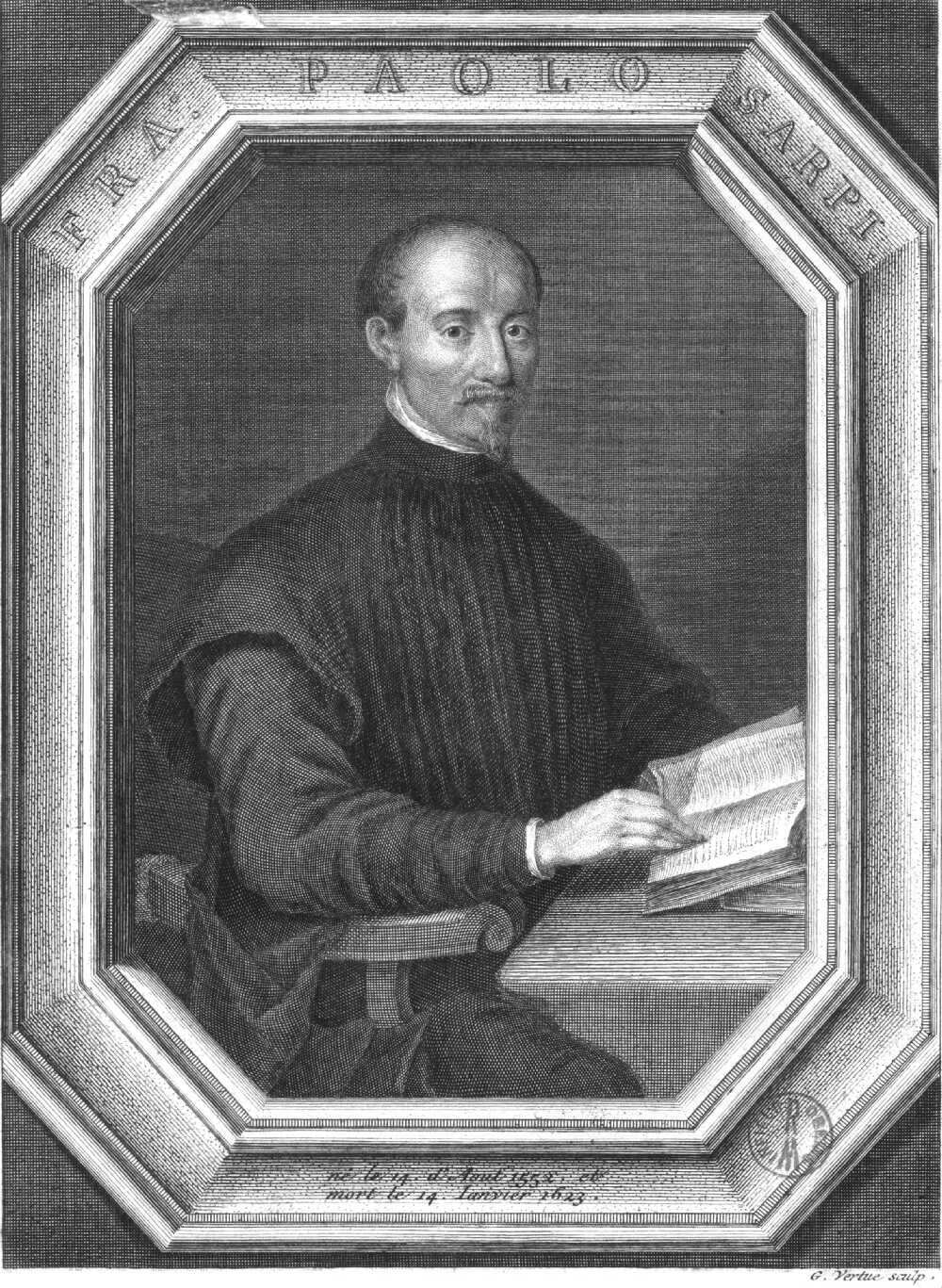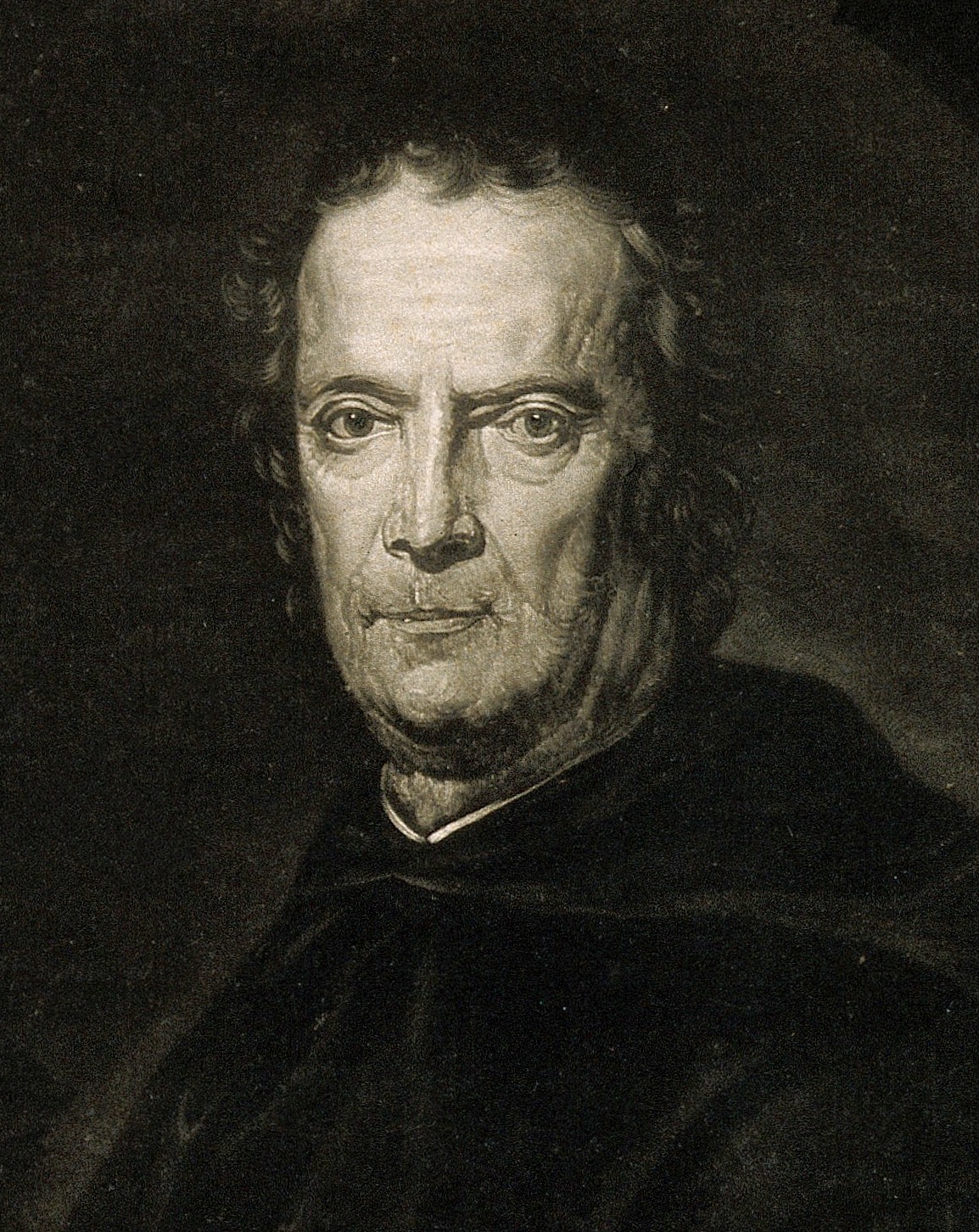Sarpi, Paolo, 1552-1623
Enlarge text Shrink text- LCN ; BN on line
Paolo Sarpi, O.S.M. (14 August 1552 – 15 January 1623) was an Italian Servite friar and Catholic priest who was a notable historian, scientist, canon lawyer, polymath and statesman active on behalf of the Venetian Republic during the period of its successful defiance of the papal interdict (1605–1607) and its war (1615–1617) with Austria over the Uskok pirates. His writings, frankly polemical and highly critical of the Catholic Church and its Scholastic tradition, "inspired both Hobbes and Edward Gibbon in their own historical debunkings of priestcraft." Sarpi's major work, the History of the Council of Trent (1619), was published in London in 1619; other works: a History of Ecclesiastical Benefices, History of the Interdict and his Supplement to the History of the Uskoks, appeared posthumously. Organized around single topics, they are early examples of the genre of the historical monograph. As a defender of the liberties of Republican Venice and proponent of the separation of Church and state, Sarpi attained fame as a hero of republicanism and free thought and possible crypto Protestant. His last words, "Esto perpetua" ("may she [i.e., the republic] live forever"), were recalled by John Adams in 1820 in a letter to Thomas Jefferson, when Adams "wished 'as devoutly as Father Paul for the preservation of our vast American empire and our free institutions', as Sarpi had wished for the preservation of Venice and its institutions." Sarpi was also an experimental scientist, a proponent of the Copernican system, a friend and patron of Galileo Galilei, and a keen follower of the latest research on anatomy, astronomy, and ballistics at the University of Padua. His extensive network of correspondents included Francis Bacon and William Harvey. Sarpi believed that government institutions should rescind their censorship of the Avvisi—the newsletters that started to be common in his time—and instead of censorship, publish their own versions of the news to counter enemy publications. In that spirit, Sarpi himself published several pamphlets in defence of Venice's rights over the Adriatic. As such, Sarpi could be considered as an early advocate of the freedom of the press, though the concept did not yet exist in his lifetime.
Read more on Wikipedia >
 Personality
Personality







